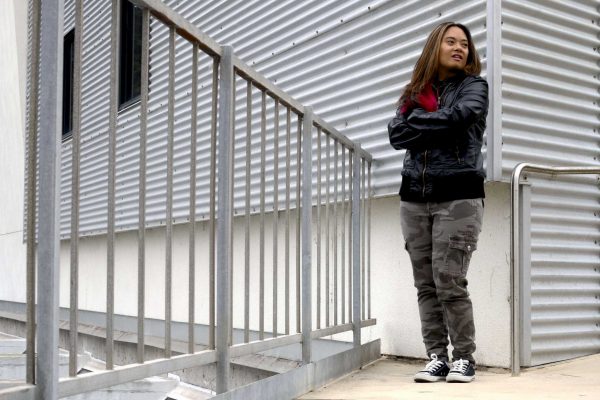California Gov. Jerry Brown signed a new bill Thursday, Sept. 25 banning forced sterilization as a form of birth control in state prisons, a medical procedure commonly given to women without their consent.
The new law will protect women in county jails, state prisons and other detention centers by requiring that inmates first receive extensive counseling from independent physicians in life-threatening situations before they comply to having tubal ligations and hysterectomies, which have been against the law since 1979.
“There is a lot of wrongdoing towards women behind bars,” women and gender studies professor, MA Jaimes Guerrero said. “There’s a lot of manipulation and exploitation.”

Guerrero argued that sterilizing women without consent denies them of a basic human right.
Justice Now, a prisoner abolition organization in Oakland that focuses on the needs of women prisoners, started looking at prenatal care in prisons in 2004. The center analyzed how prisons delivered medical care to pregnant female inmates and discovered that illegal tubal ligations were taking place in prisons.
“Around that same time we had been working with people in other prisons who were being given hysterectomies or oophorectomies or having procedures that they were told were not sterilizing,” Campaign and Communications Director at Justice Now Misty Rojo said. “And through investigating their medical records we came to find out that they were in fact being sterilized surgically and not informed.”
SF State student Melanie Ruperto, 33, was incarcerated three times in a span of nine months between November 2010 to May 2011. She spent her sentence in the San Mateo County Jail and said she didn’t know forced sterilizations were happening at the county level.
“When I read about the article I was pretty shocked, because I didn’t know that they were doing that in prisons,” Ruperto said, referring to the article by CIR. “I’m glad that they passed the bill banning that because I don’t think people should be stripped of their right to have children.”
Ruperto has been a student at SF State since 2012 and she is also a part of Project Rebound, a SF State program that supports the formerly incarcerated on their journey through successful integration into a college setting.
“You don’t know what’s going to happen down the road, that person might change, they might get their life together, they might never return to prison,” she said, adding that there’s a lot of animosity towards women who have been in prison and have children.
More than 150 female inmates have been illegally sterilized from 2006 to 2010 without the required state approval by doctors contracted by the California Department of Corrections and Rehabilitation, according to The Center for Investigative Reporting.
In some instances women were being told they needed a sterilization procedure, when they didn’t have any medical condition that warranted the surgery, Rojo said.
It wasn’t until Justice Now filed a public acts request to get data on how many women had been illegally sterilized that they started to draw attention and began knocking on legislative doors in 2010. When CIR got involved in the project, the organization and legislation began to push forward.
State Sen. Hannah-Beth Jackson’s office sponsored the legislation. “Justice Now stayed involved with the bill as far as sponsorship and helping to make sure that any of the amendments that were made were not done in a way that stripped the rights from the people inside,” Rojo said.
Rojo has been working with people both inside and outside of the prison system and has helped identify women who have had the procedure. Justice Now plans to identify and work with people who have undergone the procedure to work out an apology and other forms of reparation before the bill takes effect Jan. 1, 2015
“There’s a whole notification piece as to how this changes the system and how this changes the way doctors treat people inside because there’s a sunshine piece of the bill that moves the prohibition on tubal ligation from the health and safety code over to the penal code,” Rojo said.
Rojo also mentioned that according to California Department of Corrections and Rehabilitation, doctors were unaware that tubal ligations were in fact illegal, because the law had been placed under the health code instead of the penal code.
Under the new system, if there is a diagnosed medical need a new process will have to be followed, such as offering a second opinion or a less invasive remedy first. If the person refuses those remedies or those remedies seem not to work then they would be able to get a sterilization procedure. A mental health exam will also follow so that the person can fully understand the extent of the procedure.
The new law will also require local jails and state prisons to track the surgeries online.
“Our hope going forward and being part of the bill also calls for statistical data to be released on an annual basis and be published on a website,” Rojo said. “We hope we can also monitor the statistical data and hopefully we’ll see the numbers of people who are getting sterilizing procedures to drop.”




